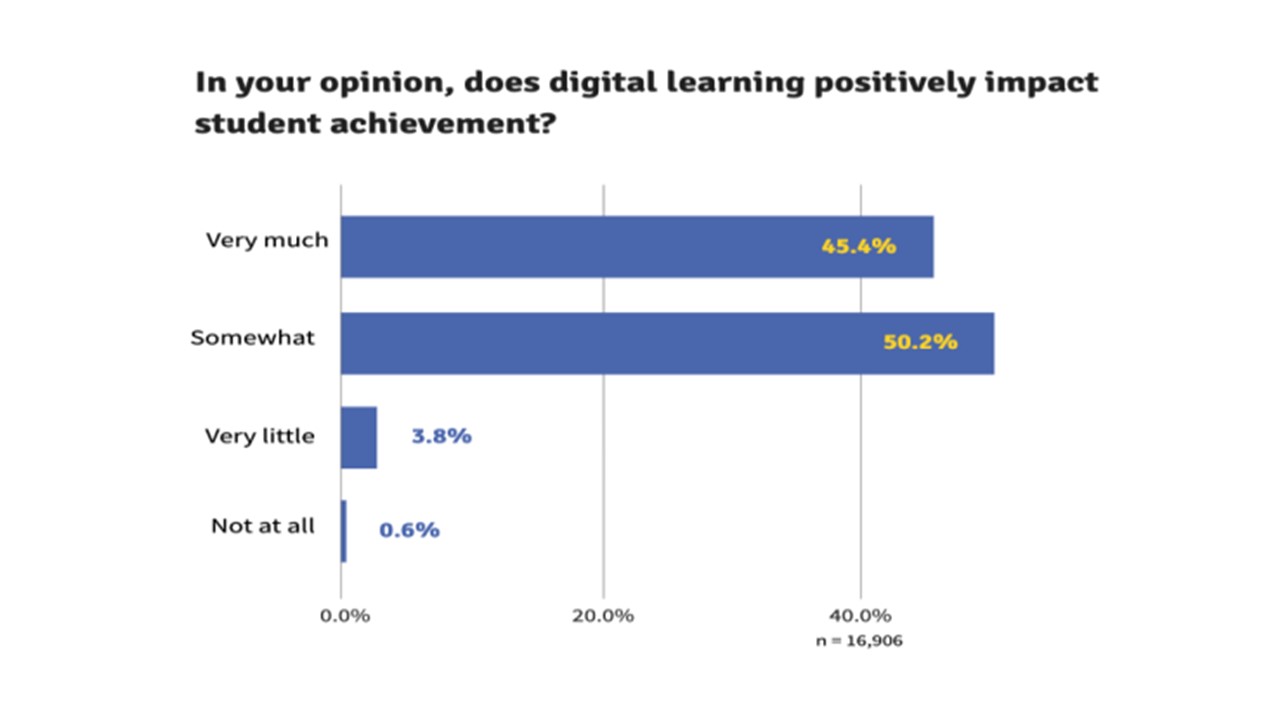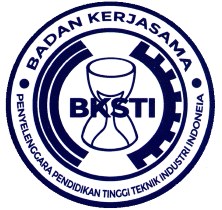Learning in the Digital Age During the COVID-19 Pandemic for School Improvement
DOI:
https://doi.org/10.12928/spekta.v3i1.5904Keywords:
Digital age , Mocile technology, Online education , Pursuit knowledge, Pedagogical new normAbstract
Background: Digital learning became increasingly popular when the COVID-19 disaster hit. Even though, its implementation is still less popular after no special indicators are used to create systematic learning. Comprehensive access to online education with fifth generation (5G) mobile technology coverage will enhance the quality of learning in the face of the digital age.
Contribution: The contribution of this study is to increase the awareness of online learning during the COVID-19 pandemic. It recognizes the importance of strengthening online learning when schools close. It also highlights digital technologies and practices for school improvement and enters an endemic era.
Method: Synthesis method. Researcher synthesized information naturally to help others see connections between things.
Results: The presence of the COVID-19 threat has opened a new norm in pedagogical methods in Malaysia. The use of technology has long been championed since 2013. Its importance became apparent after the emergence of the pandemic in early 2020. Not because of pandemic had to give way to technology but the times need change according to the currents of modernity and high technology. Since then, we have faced the threat of a pandemic and through a life of new norms. The convenience of computers and smartphones has changed the current learning process.
Conclusion: The COVID-19 pandemic has affected the structure of Learning and Teaching in Malaysian educational institutions. Education institutions were also instructed to close and the live or face-to-face method of Learning and Teaching was changed to fully online Learning and Teaching. The education system will undergo changes of learning in the digital age. Digital learning also continues to be the new norm of pedagogy in the future.
References
Latifah Arifin. Budget 2022: Teachers' Unions Are Disappointed Not To Focus On Digital Education. Daily News, 2021, October 30. https://www.bharian.com.my/berita/nasional/2021/10/881880/bajet-2022-kesatuan-guru-kecewa-tak-tumpu-pendidikan-digital
Suraya Roslan. Improve The Quality Of Learning. Metro Daily, 2022, Feb14. https://www.hmetro.com.my/bisnes/2022/02/810055/tingkat-kualiti-pembelajaran
Mulenga, E. M., & Marban, J. M. Is COVID-19 the gateway for digital learning in Mathematics Education? Contemporary Educational Technology, 12(2), 1–11. 2020.
Basilaia, G., & Kvavadze, D. Transition to Online Education in Schools during a SARS-CoV-2 Coronavirus (COVID-19) Pandemic in Georgia. Pedagogical Research, 5(4), 1–9. 2020.
Setiawan, A. R., & Ilmiyah, S. Students’ Worksheet for Distance Learning Based on Scientific Literacy in the Topic Coronavirus Disease 2019 (COVID-19). EdArXiv, 1–9. 2020.
Sa, M. J., & Serpa, S. The Global Crisis Brought about by SARS-CoV-2 and Its Impacts on Education: An Overview of the Portuguese Panorama-ft. Science Insights Education Frontiers, 5(2), 525–530. 2020.
Butcher, J. Public-Private Virtual-School Partnerships and Federal Flexibility for Schools during COVID-19. SSRN Electronic Journal, 1–5. https://doi.org/10.2139/ssrn.3564504. 2020.
Xie, Z., & Yang, J. Autonomous learning of elementary students at home during the COVID-19 epidemic: a case study of the second elementary school in Daxie, Ningbo, Zhejiang Province, China. SSRN Electronic Journal, 4(2), 535–541. https://doi.org/10.15354/bece.20.rp009. 2020.
Dai, D., & Lin, G. Online home study plan for postponed 2020 spring semester during the COVID-19 epidemic: a case study of Tangquan Middle School in Nanjing, Jiangsu Province, China. SSRN Electronic Journal, 4(2), 543–547. https://doi.org/10.15354/bece.20.rp005. 2020.
Sabariah Musa. The Challenges Of The Digital Age Generation. Kuala Lumpur: Universiti Tun Hussein Onn Malaysia (UTHM). 2022. https://news.uthm.edu.my/ms/2022/03/cabaran-generasi-era-digital/
ViewSonic Malaysia. Malaysia bakal melangkah ke era digital "Bilik Darjah 4.0".CICION PR Neswire. 2022. https://en.prnasia.com/releases/apac/72775-0.shtml
Mohd Norakmar Omar, Siti Noor, & Mohan Rathakrishnan. Use of Mobile Technology to Generate Digital Learning During Movement Control Command (MCO). IJEISR, Vol. 6, No. 1, pp. 71 – 85, December 2021.
GCF. What is a mobile device? USA: Goodwill Community Foundation (GCF) Inc. 2021. https://edu.gcfglobal.org/en/computerbasics/mobile-devices/1/
Andriotis, N. Benefits of Microlearning. USA: efront. 2022. https://www.efrontlearning.com/blog/2015/09/everything-you-wanted-to-know-about-micro-learning-but-were-afraid-to-ask.html
Misa, T.J, Brey, P and Feenberg, A. Modernity and Technology. UK: The MIT Press. 2022. https://mitpress.mit.edu/books/modernity-and-technology
NCES. Technology Applications, Technology in Schools: Suggestions, Tools, and Guidelines for Assessing Technology in Elementary and Secondary Education. USA: National Centre for Education Statistics. 2003. https://nces.ed.gov/pubs2003/tech_schools/chapter4.asp
Natalia, L. N. M, Alenjandro, B, & Miguel, A.P.N. Digital Teaching Materials and Their Relationship with the Metacognitive Skills of Students in Primary Education. Education Sciences 10(4):114, April 2020.
IGI. What is ICT Facilities. IGI Global. 2022. https://www.igi-global.com/dictionary/the-role-of-information-professionals-in-south-africa-in-the-provision-of-information-during-covid-19/96461
Balachander, K & Graham ,C. Key differences between Web 1.0 and Web 2.0. First Monday. 13 (6). 02 June 2008.
Brendan, M. M, Sean, O. G & Sinead N, G. Super Vision: The Role of Remote Observation in The Professional Learning of Student Teachers and Novice Placement Tutors. TechTrends volume 63, pages 703–710. 2019. https://link.springer.com/article/10.1007/s11528-019-00432-z
Bureau, US Census. Reaching Out to the Young and Mobile to Respond to the 2020 Census. USA: The United States Census Bureau. 2020.
NSW. Digital Learning Packs. USA: NSW Government. 2022. https://education.nsw.gov.au/teaching-and-learning/learning-from-home/learning-at-home/2022-digital-learning-packs
Dimock, M. Defining generations: Where Millennials end and Generation Z begins. USA: Pew Research Center. 2019. https://www.pewresearch.org/fact-tank/2019/01/17/where-millennials-end-and-generation-z-begins/
Doyle, A. What Are Soft Skills? California: Dotdash Meredith. 2022. https://www.thebalancecareers.com/what-are-soft-skills-2060852
Ark, C.V. 10 Reasons Why Lifelong Learning is the Only Option. 2017. USA: Getting Smart. https://www.gettingsmart.com/2017/01/20/10-reasons-why-lifelong-learning-is-the-only-option/
myViewBoard. A Visual Learning Platform. USA: ViewSonic. 2022. https://myviewboard.com/
Davis, L. Digital Learning: What to Know in 2020, Impact of Digital Learning on Students Achievement. Evolving Ed | February 06, 2020. https://www.schoology.com/blog/digital-learning

Downloads
Published
How to Cite
Issue
Section
License
Copyright (c) 2022 Bih Ni Lee

This work is licensed under a Creative Commons Attribution-ShareAlike 4.0 International License.
Authors who publish with SPEKTA (Jurnal Pengabdian Kepada Masyarakat: Teknologi dan Aplikasi) agree to the following terms:
- Authors retain copyright and grant the journal the right of first publication with the work simultaneously licensed under a Creative Commons Attribution License (CC BY-SA 4.0) that allows others to share the work with an acknowledgment of the work's authorship and initial publication in this journal.
- Authors are able to enter into separate, additional contractual arrangements for the non-exclusive distribution of the journal's published version of the work (e.g., post it to an institutional repository or publish it in a book), with an acknowledgment of its initial publication in this journal.
- Authors are permitted and encouraged to post their work online (e.g., in institutional repositories or on their website) prior to and during the submission process, as it can lead to productive exchanges, as well as earlier and greater citation of published work.

This work is licensed under a Creative Commons Attribution-ShareAlike 4.0 International License.












